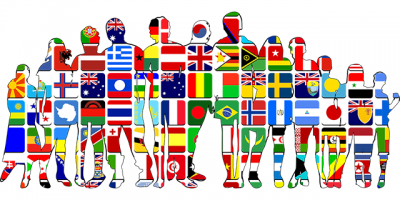
Racism is endemic to our country, though it is recognized by some and denied by others. There are too many examples to reference throughout our country’s history, but a few infamous examples that remain permanently etched in our collective memory include slavery, internment camps, the Holocaust, and, in January 2021, the insurgence upon our nation’s capital. Recognizing the different forms racism can take is important for us to bring about change.
To better address the impact of racism upon the clients Domestic and Sexual Violence Services (DSVS) serves, and in keeping with One Fairfax, we define the three types of racism as follows:
Individual Racism
- Pre-judgment, bias, or discrimination by an individual based on race.
- Individual-level racism includes both internalized racism—our private beliefs and biases about race and racism that are influenced by our culture—as well as interpersonal racism, which occurs between individuals when we interact with others and our private racial beliefs affect our public interactions.
Institutional Racism
- Policies, practices and procedures that work better for white people than for people of color, often unintentionally or inadvertently.
Structural Racism
- A history and current reality of institutional racism across all institutions, combining to create a system that negatively impacts communities of color.
 While the more we learn about how our private racial beliefs impact the quality of our relationships with ourselves and others, the focus and emphasis of One Fairfax and DSVS is on institutional and structural racism. Institutional racism occurs within institutions and organizations such as schools, businesses, and government agencies which adopt and maintain policies that routinely produce inequitable outcomes for people of color and advantages for white people. Relatedly, structural racism is racial bias among interlocking institutions and across society, causing cumulative and compounding effects that systematically advantage white people and disadvantage people of color. Structural racism refers to the history, culture, ideology, and interactions of institutions and policies that work together to perpetuate inequity.
While the more we learn about how our private racial beliefs impact the quality of our relationships with ourselves and others, the focus and emphasis of One Fairfax and DSVS is on institutional and structural racism. Institutional racism occurs within institutions and organizations such as schools, businesses, and government agencies which adopt and maintain policies that routinely produce inequitable outcomes for people of color and advantages for white people. Relatedly, structural racism is racial bias among interlocking institutions and across society, causing cumulative and compounding effects that systematically advantage white people and disadvantage people of color. Structural racism refers to the history, culture, ideology, and interactions of institutions and policies that work together to perpetuate inequity.
As part of strategic planning, DSVS redefined its mission statement with focus upon diversity, inclusion, and equity. The DSVS mission states, “We work with communities to transform society’s response to domestic violence, sexual violence, human trafficking, and stalking by challenging oppression, collaborating to inform policy, and providing all persons impacted by violence with equitable access to trauma informed support, advocacy, education, and a space for healing.”
In future editions of Volunteer Voices, we will examine the DSVS strategic plan and how pillars of the plan integrate an equity lens. One Fairfax and DSVS believe when we recognize that racism operates at the individual, institutional, and structural level, we can move beyond individual anxiety and focus on institutional and structural change.
—Alaha Ahrar, Keesha Coke, Gretchen Soto
This article posting is part of the Domestic and Sexual Violence Services' Volunteer Voices monthly newsletter for current and potential volunteers. If you're not already a volunteer, learn how to get involved. Find out about upcoming trainings, volunteer trainings, happenings around the DSVS office and information about articles, books, media recommendations and more.
Learn more about the Domestic and Sexual Violence Services (DSVS).

